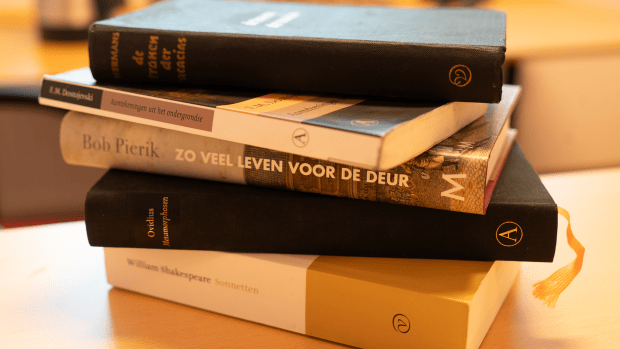
Willemijn van Dolen | Would you rather buy a top-rated or a bestselling product?
Suppose you want to buy a book. Would you go for the bestseller or for the book that is rated highest? The choice seems to depend on how you identify yourself, writes Willemijn van Dolen in her column.
I walked into a bookstore this summer because I was looking for the book Briljante Bonen by Bloeme Burema. As I walked to the back to the cookbooks, my eye was caught by books that were set out on tables, for inspiration. One table covered the ‘bestseller’ books (most sold), and on the other table were the ‘top-rated’ books with the readers’ scores on Hebban, the most popular book site and community in the Netherlands.
Bestseller and top-rated are called consensus cues; signals about how people generally respond to a product. There are cues that describe the behaviour of others (the word bestseller implies that the product is widely bought) and cues that describe people’s attitudes (top-rated implies that the product is appreciated).
Now, you might think that bestseller and top-rated are the same thing because, after all, you buy what you like, right? But they don’t have to be. In the top ten best-selling books on bol.com, i.e. bestseller, a book rated 3 out of 5 stars is not top-rated. We see the same thing in other contexts. For instance, there are rows of people in front of Van Wonderen’s stroopwafels on Kalverstraat even though they score a 3.3 on Google reviews. And if you sort by ‘popular’ (bestseller) on hotel booking sites, you get a different list than if you select by ‘top-reviewed’.
The question is which of these consensus cues is more compelling, the ‘best-seller’ or the ‘top-rated’?
Research shows that it depends on how you identify yourself. If that is more independent, according to your own characteristics, it is called independent self-construal. We see this more in Western cultures. If people identify themselves based on social relations and the environment, that is called interdependence self-construal. This is found more in collectivist cultures, such as India or China.
Intuitively, one might think that information about the behaviour of others (bestseller) affects people who have a dependent self-construal in particular. They are more likely to conform to norms and therefore like to do what others do. But the researchers found the opposite; for them, on the contrary, signals that reflect people’s positive attitudes are more convincing, i.e. top-rated. As an explanation, the researchers gave that behavioural consensus is seen as a weak signal of quality for this group; if people make purchases because it is the norm, a bestseller signal indicates conformity, but not what people really like. For independents, bestseller signals are as diagnostic as top-rated.
My Briljante Bonen was on neither table, even though it really is a very good book. Top-rated, in other words. By your columnist. Hope for Bloeme that it becomes a bestseller now.

